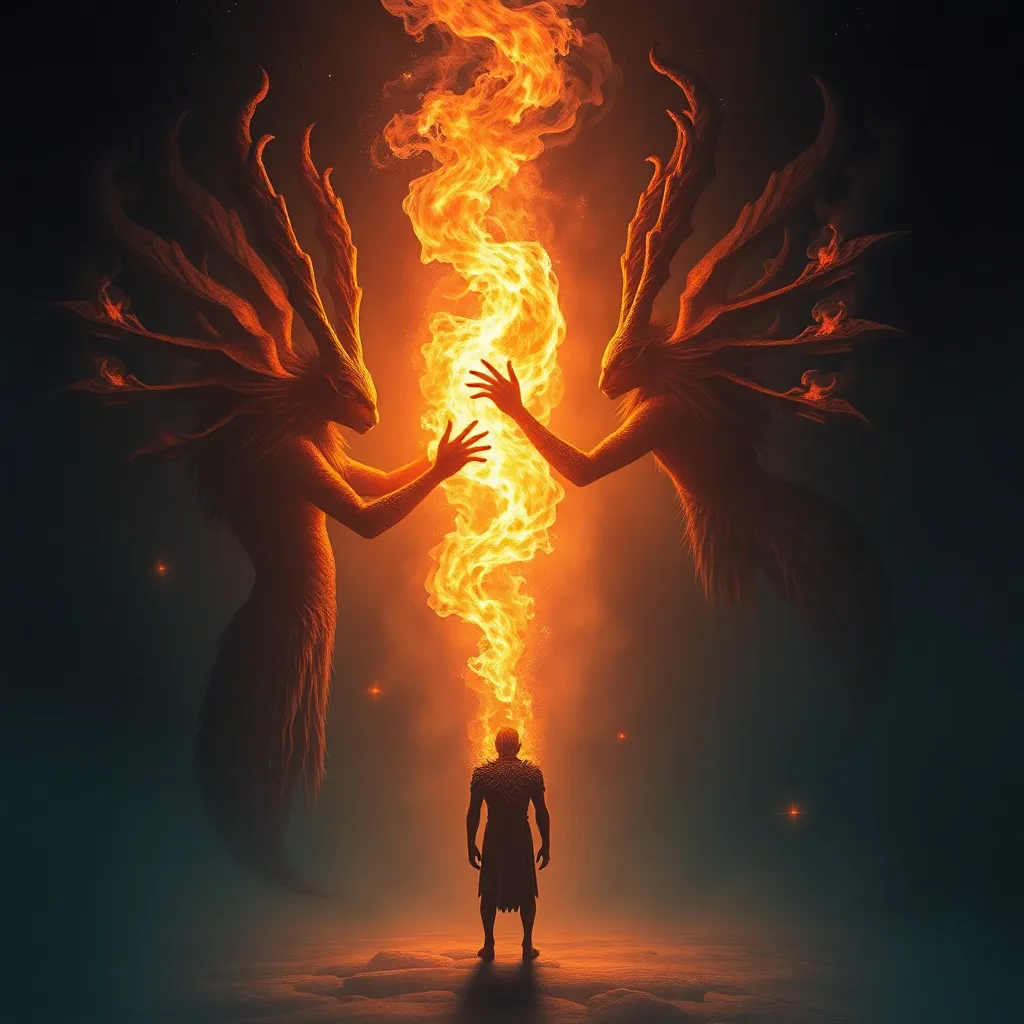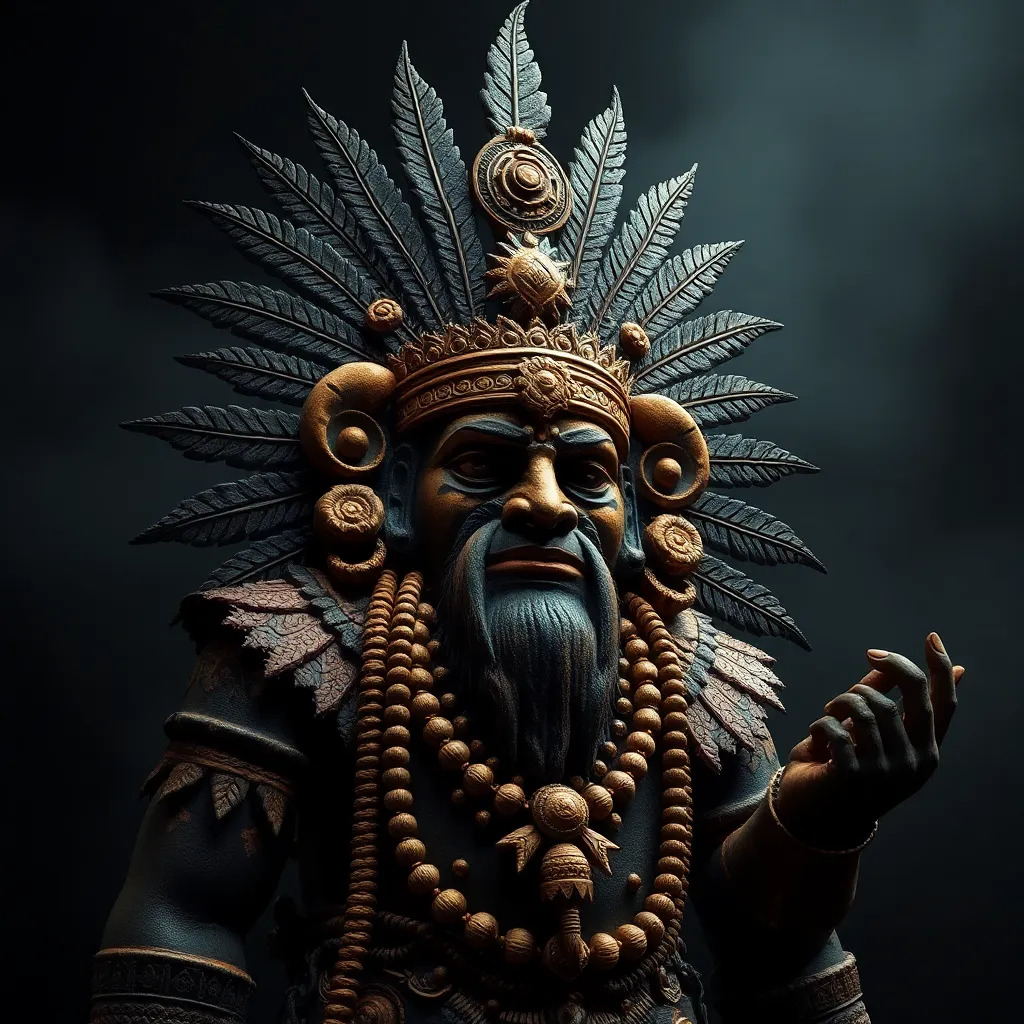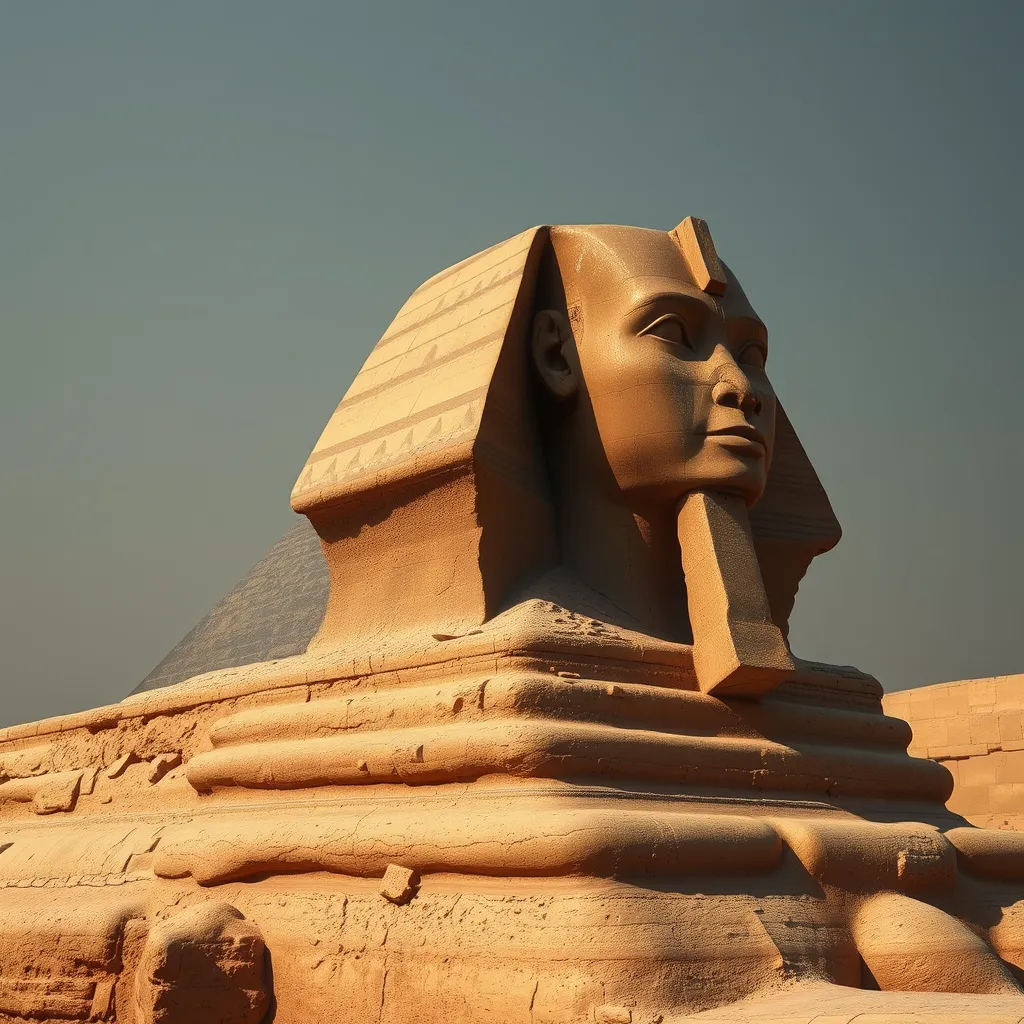The Ifrit and the Concept of Free Will: Exploring Their Choices and Actions
I. Introduction
The Ifrit, a creature from Middle Eastern mythology, particularly in Arabic folklore, is often depicted as a powerful and fiery being. Traditionally seen as a type of djinn, Ifrits are characterized by their immense strength, intelligence, and sometimes malevolent nature. In examining the Ifrit, we also delve into the philosophical concept of free will, which concerns the ability of individuals to make choices unimpeded by external forces.
The purpose of this article is to explore the intersection of the Ifrit and the concept of free will, focusing on their choices, actions, and the implications of these decisions both in mythology and in human contexts.
II. The Mythological Background of Ifrit
The origins of the Ifrit can be traced back to ancient Arabian lore, where they are often portrayed as supernatural beings made of smokeless fire. They are known for their duality: they can be both protectors and destroyers.
- Origins: Ifrits are believed to originate from pre-Islamic Arabian traditions, later incorporated into Islamic theology, where they are considered a class of djinn.
- Characteristics: Ifrits are often depicted as strong, cunning, and capable of shapeshifting, with a fierce loyalty to their kind but a propensity for revenge against those who wrong them.
In literature and folklore, Ifrits appear in various tales, often as antagonists or formidable beings that challenge heroes.
The symbolism associated with Ifrit encompasses themes of chaos, power, and the struggle between good and evil. They embody the darker aspects of desire and human nature, often serving as a cautionary representation of the consequences of unchecked ambition.
III. Understanding Free Will
Free will is a complex philosophical concept that has been debated for centuries. It refers to the ability of individuals to make choices that are not predetermined by prior causes or divine intervention.
- Philosophical Definitions: Various definitions of free will emphasize autonomy, moral responsibility, and the capacity for rational decision-making.
- Historical Perspectives: From ancient philosophers like Aristotle, who hinted at the idea of choice, to modern discussions involving compatibilism and libertarianism, the understanding of free will has evolved significantly.
- Determinism vs. Free Will: The debate often centers around whether human actions are predetermined by external factors (determinism) or if individuals can act independently (free will).
IV. Ifrit in Action: Choices and Consequences
Throughout various mythological narratives, Ifrits are depicted making significant choices that lead to profound consequences.
- Notable Stories: In tales like “The Fisherman and the Ifrit” from “One Thousand and One Nights,” the Ifrit is trapped by a fisherman and must choose between revenge and mercy.
- Consequences of Choices: The Ifrit’s decisions often lead to catastrophic outcomes, impacting not only themselves but also the lives of the humans involved.
The moral implications of these actions raise questions about the nature of power and responsibility. Ifrits, with their immense strength and capabilities, illustrate the potential for both great good and great evil depending on their choices.
V. The Ifrit as a Metaphor for Human Struggles
The choices made by Ifrit can be seen as a metaphor for human decision-making, particularly regarding temptation, desire, and the struggle for autonomy.
- Parallels with Human Decision-Making: Just as Ifrits face dilemmas that test their morality, humans encounter similar challenges in their lives.
- The Role of Temptation: Ifrits often succumb to their desires, leading to destructive choices that mirror human vulnerabilities.
Lessons learned from Ifrit’s actions emphasize the importance of choice and the consequences that come with it, highlighting the universal nature of free will.
VI. Cultural Interpretations of Ifrit’s Free Will
Across various cultures, the portrayal of Ifrit differs significantly, influencing how free will is perceived within those contexts.
- Variations in Depiction: In some cultures, Ifrits may be viewed as benevolent guardians, while in others, they are seen as malevolent forces.
- Cultural Context: The interpretation of Ifrit’s actions and choices is often shaped by the cultural values and beliefs surrounding free will and morality.
A comparative analysis with other mythological beings, such as Prometheus or Lucifer, can reveal common themes of rebellion, choice, and the quest for knowledge.
VII. The Philosophical Implications of Ifrit’s Choices
The choices made by Ifrit raise significant philosophical questions about the nature of good and evil, as well as the implications of free will.
- Good and Evil: Ifrit’s actions often blur the lines between good and evil, prompting discussions about moral relativism and the complexity of motivation.
- Double-Edged Sword: Free will is portrayed as a double-edged sword, granting empowerment but also imposing the burden of responsibility for one’s actions.
Examining Ifrit as a reflection of human nature allows for a deeper understanding of our own choices and the inherent struggles that come with exercising free will.
VIII. Conclusion
In summary, the exploration of the Ifrit within the framework of free will reveals significant insights into the nature of choice and consequence. The stories of Ifrit illustrate the complexities of decision-making and the moral dilemmas faced by both mythical beings and humans alike.
The themes of ambition, temptation, and the struggle between good and evil remain relevant in contemporary society, urging individuals to reflect on their own choices and the impact of those decisions. As we continue to explore the intersection of mythology and philosophy, the narratives of the Ifrit serve as a powerful reminder of the ongoing journey of understanding agency and responsibility in our lives.




